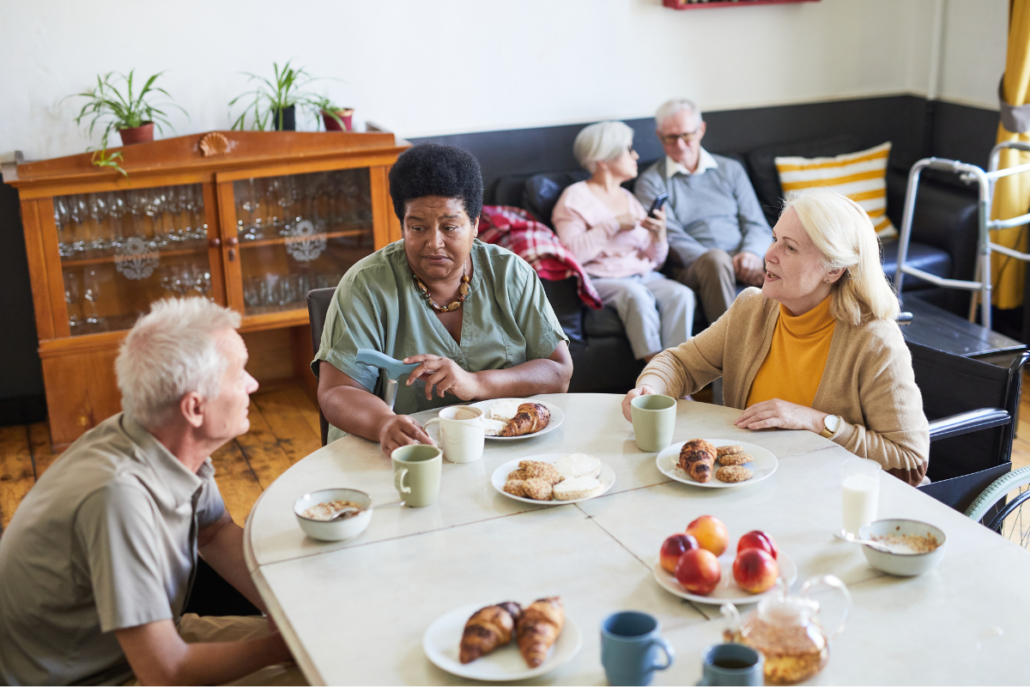Group homes in Virginia provide essential support and care for individuals who cannot live independently due to age, disability, or other personal circumstances. These homes offer a safe, residential setting with 24/7 supervision and assistance while promoting as much independence as possible for residents.
Whether you’re caring for older adults, individuals with developmental disabilities, or youth in need of a structured environment, operating a group home in Virginia requires compliance with strict state regulations. Understanding these rules is key to building a successful, licensed residential care home.
What Is a Group Home in Virginia?
A group home is a licensed residential facility that provides housing, supervision, and personalized care services to individuals in a shared living space. Group homes in Virginia often serve:
-
Adults with developmental or intellectual disabilities
-
Seniors who need help with daily living
-
Youth in foster care or at-risk populations
-
Individuals with mental health or substance use disorders
Group homes are an important part of Virginia’s healthcare and social support system. They bridge the gap between institutional care and independent living.

Licensing and Oversight in Virginia
In Virginia, group homes are regulated by the Virginia Department of Behavioral Health and Developmental Services (DBHDS) and Virginia Department of Social Services (VDSS), depending on the type of population served.
Before operating, providers must:
-
Obtain the appropriate license from DBHDS or VDSS
-
Pass a criminal background check for all owners and staff
-
Complete required orientation and provider training
-
Submit detailed program and service plans
-
Ensure their facility meets all building, fire safety, and zoning codes
Types of Licenses
-
Group Home for Adults with Disabilities – Overseen by DBHDS
-
Assisted Living Facilities (ALFs) – Licensed through VDSS
-
Children’s Residential Facilities – Regulated by VDSS and sometimes the Virginia Department of Education
Each license has specific requirements depending on the type of care and population served.
Virginia Group Home Requirements
Here’s a breakdown of what you need to operate a licensed group home in Virginia:
1. Safe and Accessible Housing
-
The home must meet state and local building codes.
-
Must pass fire, health, and safety inspections.
-
ADA compliance is required if you’re serving individuals with physical disabilities.
-
Residents must have access to private or semi-private bedrooms, clean bathrooms, dining areas, and common living spaces.
2. Staffing Requirements
-
Group homes must be staffed 24/7 with qualified personnel.
-
Direct care staff must have relevant training and experience.
-
Managers or administrators must complete orientation and ongoing training.
-
Staff must be trained in CPR, first aid, medication management, and behavior support strategies.
3. Individualized Service Plans
-
Each resident must have a written care plan tailored to their needs.
-
Plans should include daily routines, personal goals, medical support, and emergency protocols.
-
Plans must be reviewed and updated regularly with input from family, case managers, or medical professionals.
4. Daily Living Support
Group homes in Virginia must provide assistance with:
-
Personal hygiene (bathing, dressing, grooming)
-
Meal preparation and nutrition
-
Medication management
-
Transportation to medical or therapy appointments
-
Housekeeping and laundry
5. Social and Community Engagement
-
Opportunities for social interaction, recreation, and community involvement must be available.
-
Residents should have access to vocational programs, day services, or educational support when appropriate.
Community and Zoning Requirements
Zoning regulations can vary by city and county in Virginia. Before opening your group home:
-
Check with the local zoning board for residential care approval.
-
Attend public hearings if required.
-
Educate neighbors and the community about your group home’s mission and residents.
Insurance Requirements for Group Homes in Virginia
Protect your residents, staff, and property with the right insurance policies:
-
General liability
-
Professional liability (for health care services)
-
Property insurance
-
Workers’ compensation
Training and Certification
Staff must complete ongoing training in:
-
Medication administration
-
Infection control
-
Behavior intervention and support
-
Food safety (if meals are prepared in-house)
Special certifications may be required depending on your population (e.g., autism spectrum disorders, dementia care).




